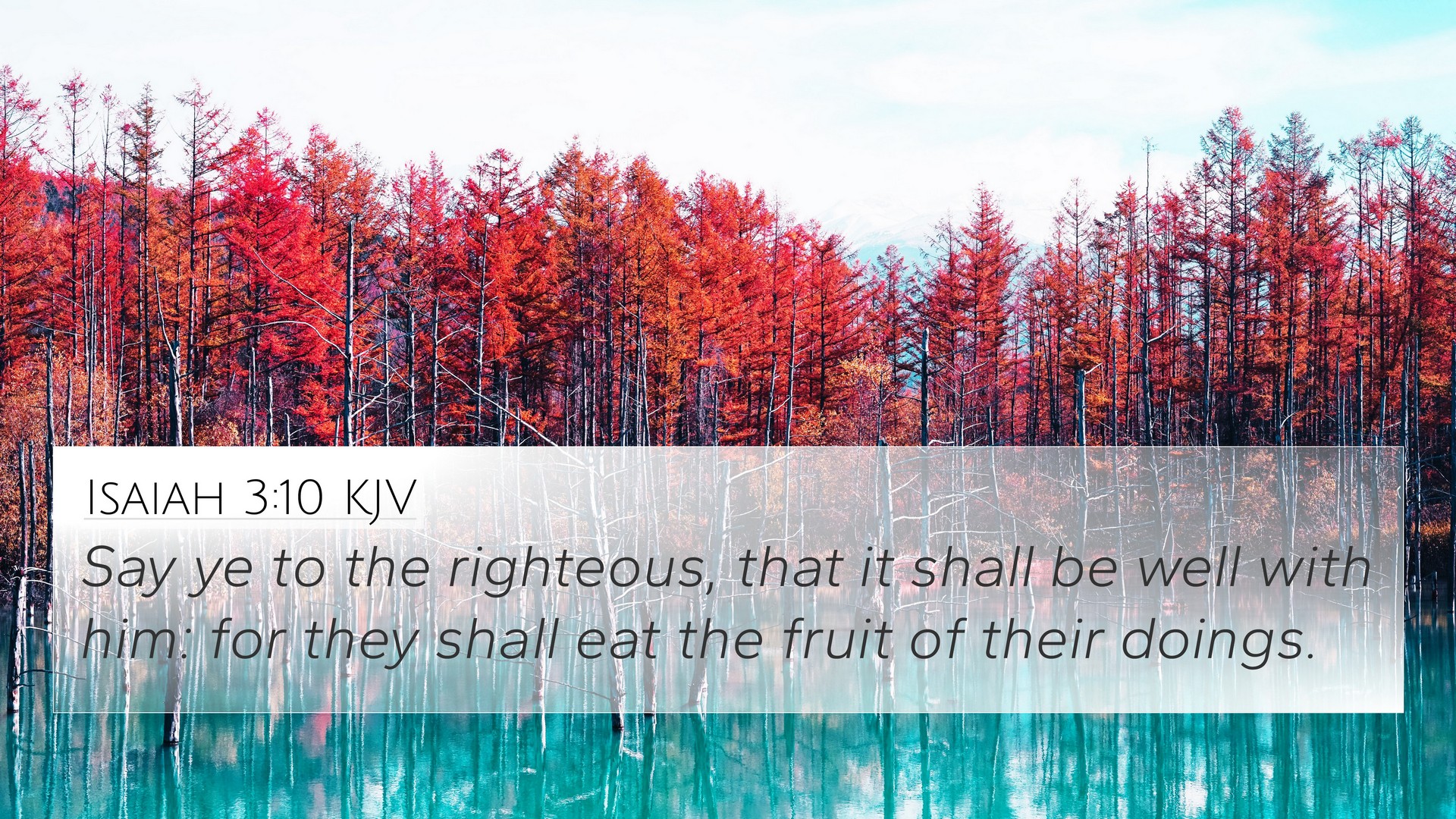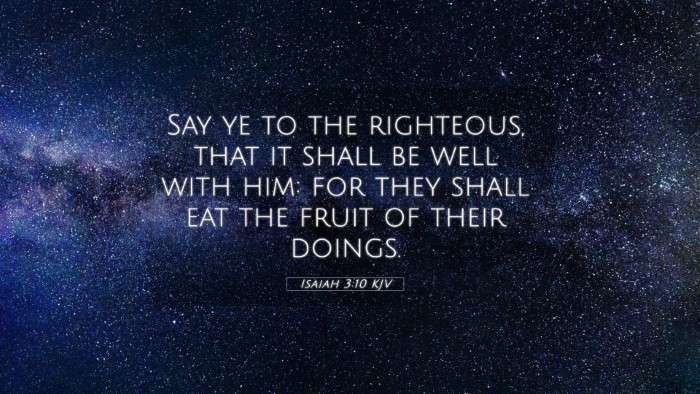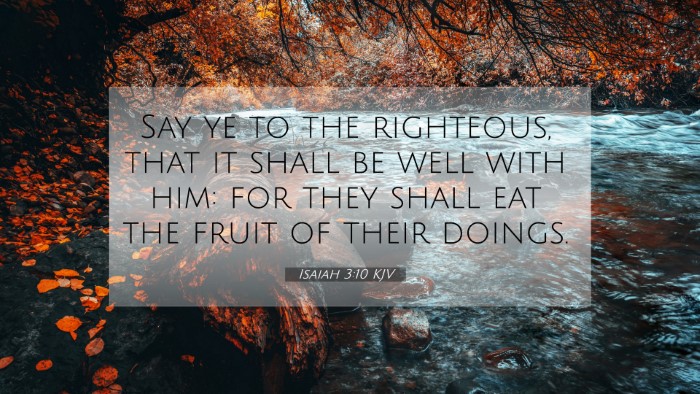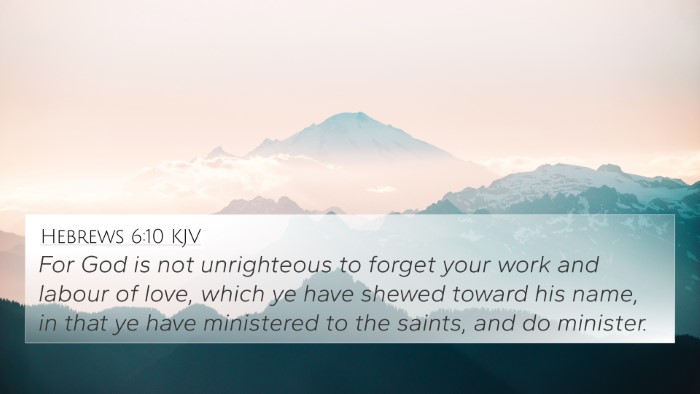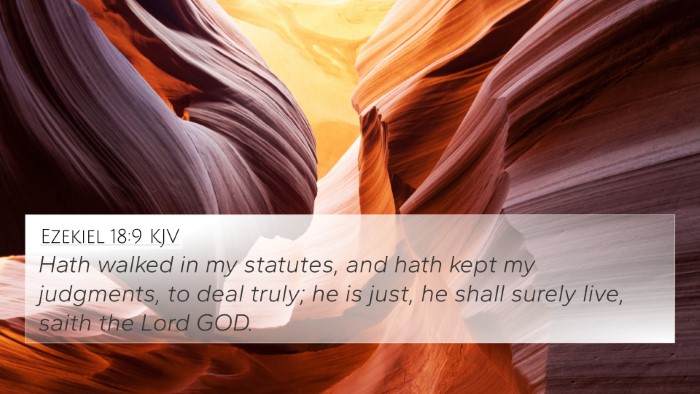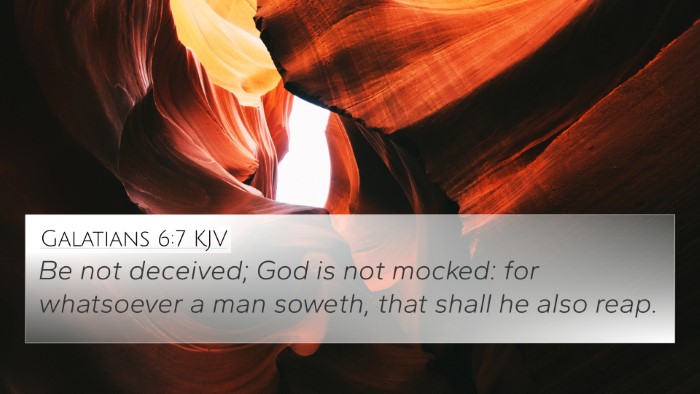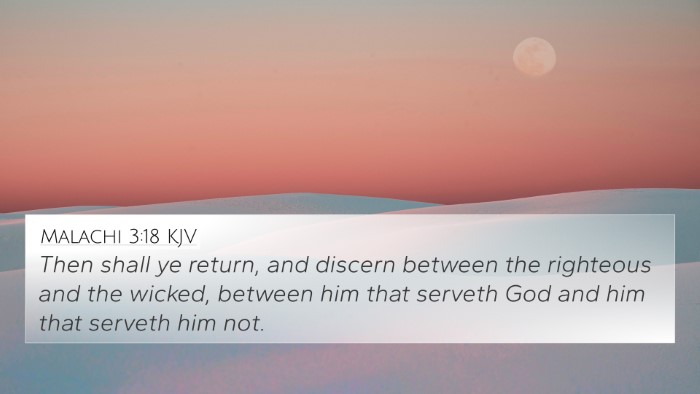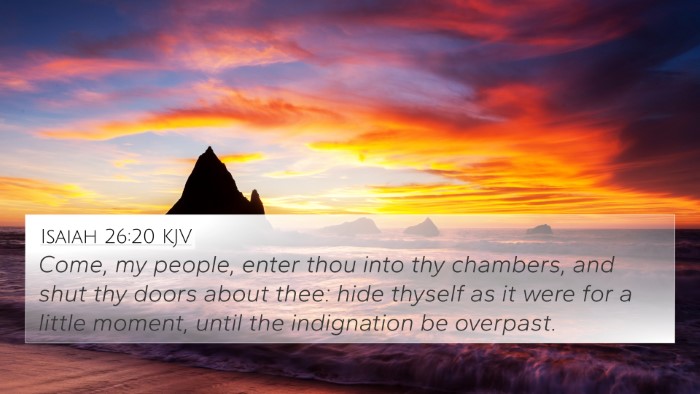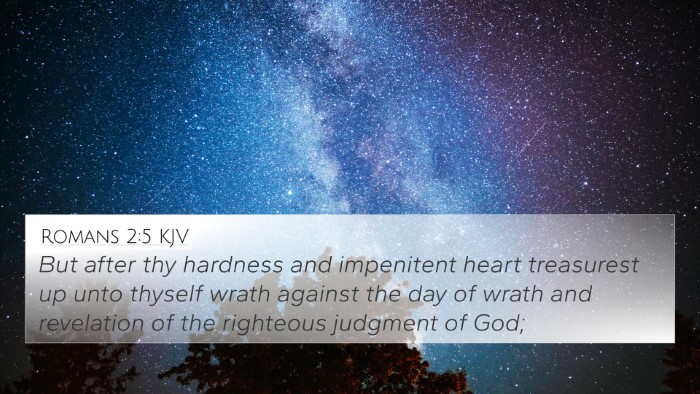Understanding Isaiah 3:10
Verse: "Say ye to the righteous, that it shall be well with him: for they shall eat the fruit of their doings."
Summary of Isaiah 3:10 Meaning
Isaiah 3:10 conveys a clear message of hope and assurance to the righteous amidst the impending judgment on the unrighteous. The verse indicates that the consequences of one's actions are significant, encouraging individuals to maintain righteousness. This passage serves not only as a proclamation of the blessings that befall the righteous but also emphasizes the ultimate divine justice.
Insights from Public Domain Commentaries
Matthew Henry
Matthew Henry highlights that the righteous can be assured that their faithfulness will lead to divine favor. He underscores that the “fruit of their doings” refers to the blessings and rewards that result from living a life aligned with God’s commands. In the face of societal upheaval, the righteous stand firm, knowing their efforts are not in vain.
Albert Barnes
Albert Barnes offers an interpretation that points to the contrast between the fate of the righteous and the wicked. He emphasizes that while judgment may fall upon a sinful society, the righteous will find solace. Barnes also notes that the phrase “it shall be well” indicates a promise of protection and peace that transcends external circumstances, driven by a relationship with God.
Adam Clarke
Adam Clarke elaborates on the conditional assurance given to the righteous. He notes that the phrase “they shall eat the fruit of their doings” implies a direct reward based on one’s actions. Clarke suggests that this serves as a reminder to the people of Israel about the benefits of obedience and the necessity of aligning their lives with God’s principles for true prosperity.
Bible Verse Cross-References
Isaiah 3:10 can be linked to several other passages that enhance its meaning:
- Galatians 6:7-8: "For whatsoever a man soweth, that shall he also reap." This verse emphasizes the principle of reaping what one sows, similar to Isaiah's message about the reward for righteous living.
- Psalms 37:25: "I have been young, and now am old; yet have I not seen the righteous forsaken, nor his seed begging bread." This passage reinforces the promise that the righteous will be cared for.
- Proverbs 11:18: "The wicked worketh a deceptive work: but to him that soweth righteousness shall be a sure reward." Both verses affirm the assurance of reward for righteous actions.
- Isaiah 1:19: "If ye be willing and obedient, ye shall eat the good of the land." This ties into the theme of experiencing blessings as a result of righteousness.
- Matthew 5:6: "Blessed are they which do hunger and thirst after righteousness: for they shall be filled." This New Testament verse echoes the sentiment of being enriched through righteousness.
- Jeremiah 17:7-8: "Blessed is the man that trusteth in the LORD, and whose hope the LORD is." This passage similarly promises well-being to those who are faithful.
- Lamentations 3:25: "The LORD is good unto them that wait for him, to the soul that seeketh him." This emphasizes God's goodness towards those who pursue righteousness.
Thematic Bible Verse Connections
The message of Isaiah 3:10 resonates throughout Scripture, revealing the consistent theme of divine justice and the rewards for the righteous. When conducting a comparative Bible verse analysis, this verse can be linked to numerous themes such as:
- Divine justice and human accountability.
- The sustenance of the faithful during trials.
- The relationship between obedience and divine blessings.
- The assurance of God’s care for the righteous.
- Hope amidst judgment.
- The distinction between the fates of the righteous and the wicked.
Using Tools for Bible Cross-Referencing
To fully explore the connections between Bible verses, using a Bible concordance can facilitate your study. Here are some tips on how to effectively use Bible cross-references:
- Identify keywords in Isaiah 3:10 like "righteous" and "fruit" to search for related verses.
- Use a Bible cross-reference guide to locate passages that discuss similar themes.
- Engage in cross-reference Bible study methods, linking verses thematically or contextually.
- Utilize comprehensive resources such as Bible reference resources for an in-depth analysis of connections.
- Consider using a Bible cross-reference system designed for easy navigation and thematic linking.
Interpreting Biblical Themes through Cross-References
Understanding the connections between different passages not only aids in interpreting Isaiah 3:10 but enriches one's overall biblical knowledge. By cross-referencing biblical texts, one can identify similarities and contrasts, strengthening their grasp on divine principles. Consider the following when studying Isaiah 3:10:
- How do the promises in this verse relate to other instances in Scripture where God rewards the faithful?
- What patterns of behavior lead to outcomes discussed in Isaiah 3:10?
- What insights can we gain from Old Testament prophecies when viewed alongside New Testament fulfillment?
- How do the scenarios faced by the righteous today compare with those in biblical times?
- What encouragement can we draw from other believers' experiences detailed in Scripture?
Conclusion
Isaiah 3:10 is a profound declaration of the assurance provided to the righteous in a world often characterized by sin and judgment. Its themes are echoed throughout the Bible, revealing the holistic message of God's commitment to bless those who pursue righteousness. By exploring the connections between this verse and others, believers can find hope and strength in their faithful walk with God. Whether one is studying individually or in a group, using Bible cross-reference tools will greatly enhance understanding and application of scriptural principles.
